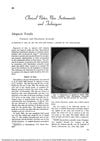TLDR Clobetasol propionate ointment can help some people with total hair loss regrow hair.
In a 2003 study, clobetasol propionate 0.05% ointment was tested for its effectiveness in treating alopecia totalis (AT) and alopecia universalis (AU) in 28 patients. The treatment involved applying the ointment under occlusion to one side of the scalp for six months. Results showed that 8 patients (28.5%) experienced hair regrowth, with the onset of regrowth starting between 6 to 14 weeks after beginning the treatment. However, 3 of these patients later relapsed. Local side effects were reported in 11 patients, but no systemic side effects were noted. The study concluded that clobetasol propionate under occlusion can induce hair regrowth in AT or AT/AU patients, with a long-term benefit in 17.8% of the cases.
 41 citations,
February 2001 in “Current pharmaceutical design”
41 citations,
February 2001 in “Current pharmaceutical design” Current and future treatments for alopecia areata focus on immunosuppression, immunomodulation, and protecting hair follicles.
[object Object] 132 citations,
November 1998 in “Journal of the American Academy of Dermatology” Topical sensitizers have mixed success in treating alopecia areata.
 101 citations,
November 1992 in “Archives of Dermatology”
101 citations,
November 1992 in “Archives of Dermatology” Steroids help hair regrowth, and minoxidil slows post-steroid hair loss, but effects are temporary.
 22 citations,
March 1963 in “Archives of dermatology”
22 citations,
March 1963 in “Archives of dermatology” A woman regrew her hair significantly using a corticosteroid cream with a plastic cover.
 6 citations,
November 2022 in “Journal of autoimmunity”
6 citations,
November 2022 in “Journal of autoimmunity” JAK inhibitors like tofacitinib may effectively treat Alopecia Areata.
 October 2022 in “Journal of Armed Forces Medical College, Bangladesh”
October 2022 in “Journal of Armed Forces Medical College, Bangladesh” Tofacitinib is effective and safe for treating alopecia areata.
[object Object]  39 citations,
April 2016 in “Case Reports in Dermatology”
39 citations,
April 2016 in “Case Reports in Dermatology” Tofacitinib temporarily regrew hair in a man with alopecia, but its effects didn't last.
 5 citations,
June 2015 in “Veterinary dermatology”
5 citations,
June 2015 in “Veterinary dermatology” A dog with complete hair loss regrew most hair after treatment, with no relapse after stopping treatment.
39 citations,
April 2003 in “Australasian journal of dermatology” PUVA treatment led to significant hair regrowth in over half of the patients with alopecia areata totalis and universalis.








